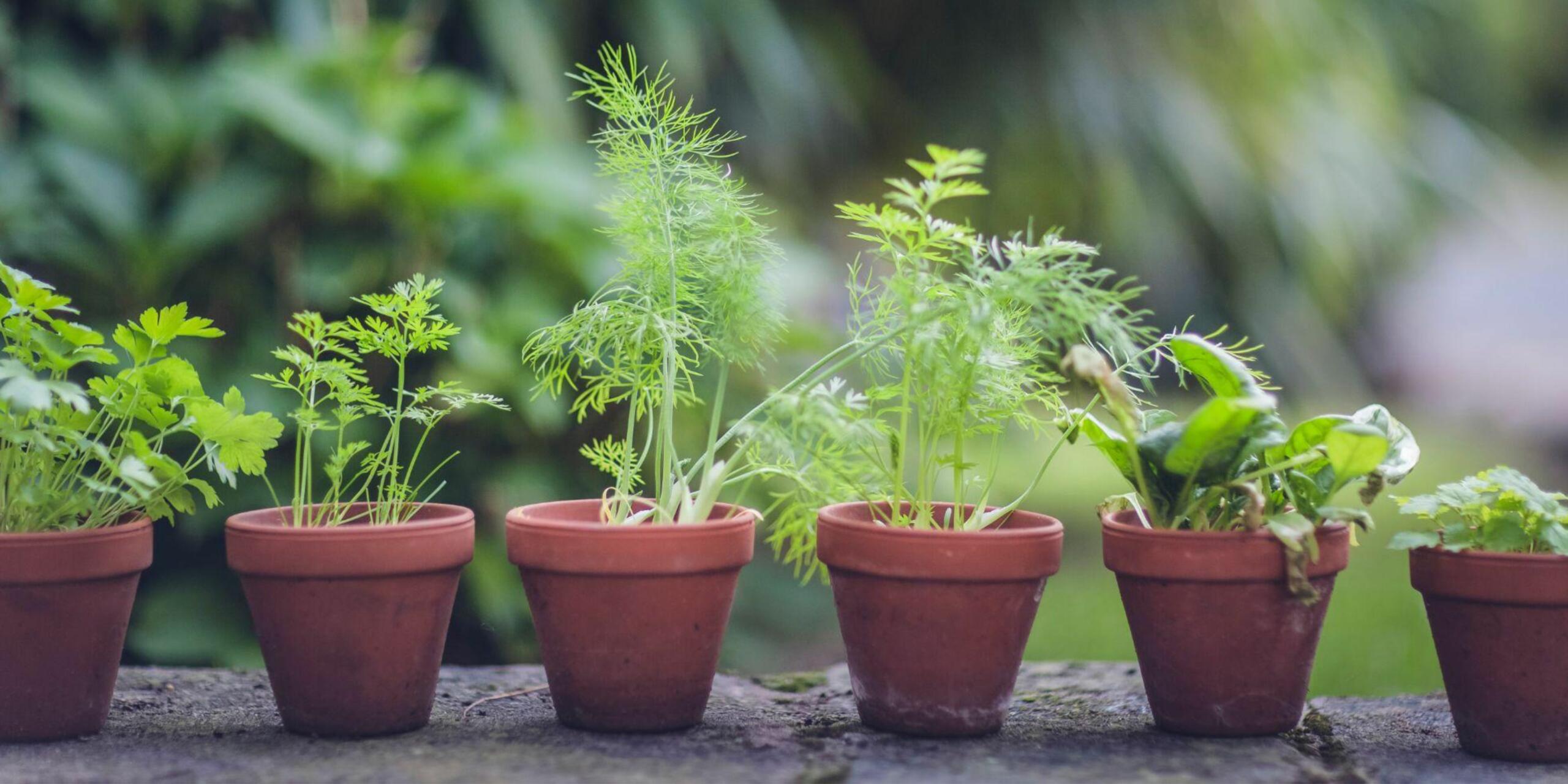5 Best Herb Plants To Buy In The Monsoon
If you’re interested in gardening, herbs are an excellent choice. With the right amount of sunlight, water, and occasional fertilizer, these can yield abundant harvests that can be used for both culinary and medicinal purposes. Most can be grown indoors or outdoors, in pots. They’re happy to bask in direct sunlight in your garden, but they’re also happy to live in shady areas.
One of the great things about choosing to plant herbs is their flexibility. If you’re looking for suggestions to get started, here are the five easiest herbs to cultivate and grow this monsoon.
Lemon Balm
This herb from the mint family is easy to cultivate and will provide a lovely citrus aroma to your garden. Lemon balm thrives well in full sunlight so it is best to plant the seeds in a spot that gets ample sunlight. However, with ample care, it can also thrive in shady areas.
For best harvest ensure that the soil is well-drained and not waterlogged. To savour the slightly lemony taste of the leaves, pluck them and use them in your meals or add them to your tea.
Basil
 Basil plants thrive during the hot summer months when planted outside. It requires plenty of water, light, and warmth, to thrive well so make sure the soil is damp but not waterlogged. To encourage fuller growth, trim the plant’s tips from time to time.
Basil plants thrive during the hot summer months when planted outside. It requires plenty of water, light, and warmth, to thrive well so make sure the soil is damp but not waterlogged. To encourage fuller growth, trim the plant’s tips from time to time.
It is a key ingredient in Italian cuisine and is often paired with tomatoes. It is used in many pasta dishes and is a primary component of pesto. It is easy to store extra basil leaves by freezing them in oil. You can add freshly picked basil to ratatouille, pizza, and pasta sauces for an extra flavourful touch.
Thyme
 Thyme belongs to the mint family and can be used in a variety of cuisines. To grow thyme, you need to place your container in a warm and sunny area with well-drained soil. It will take a few months to fully develop, so make sure to water it whenever the soil appears dry. When the leaves are ready, use a knife to collect them and add their lemony flavour to soups or stir-fry vegetables. You can even use the flowers for a tasty addition.
Thyme belongs to the mint family and can be used in a variety of cuisines. To grow thyme, you need to place your container in a warm and sunny area with well-drained soil. It will take a few months to fully develop, so make sure to water it whenever the soil appears dry. When the leaves are ready, use a knife to collect them and add their lemony flavour to soups or stir-fry vegetables. You can even use the flowers for a tasty addition.
Rosemary
 This perennial shrub with woody stems can thrive for many years once it has established its roots. It prefers hot, sunny areas with well-drained, alkaline soil. Rosemary is a popular herb in Mediterranean cooking and has a distinct fragrance and taste.
This perennial shrub with woody stems can thrive for many years once it has established its roots. It prefers hot, sunny areas with well-drained, alkaline soil. Rosemary is a popular herb in Mediterranean cooking and has a distinct fragrance and taste.
It is recommended to trim them regularly for better growth. You can also use dry any leftover stems as a seasoning in winter soups and stews. The aromatic scent will keep your kitchen smelling fresh during the colder months.
Parsley
 Parsley is a versatile herb commonly used in salads, pasta dishes, and sauces as a garnish. This traditional Italian herb has proven to be valuable both in the kitchen and in everyday life.
Parsley is a versatile herb commonly used in salads, pasta dishes, and sauces as a garnish. This traditional Italian herb has proven to be valuable both in the kitchen and in everyday life.
For a summer harvest, plant parsley seeds in the middle of spring, and for a winter harvest, plant them in the middle of summer. Parsley germinates well when the seeds are soaked overnight before planting. The germination process takes about three to four weeks, so you need to be patient. Regularly picking parsley encourages good growth.
Here are some other blogs which make your Green Space more Greener!
- Gardening Calendar Blogs
- Sustainable Gifting Ideas
- Gardener Stories
- Garden Care Blogs
- Miniature Garden Decor
- Gardening Workshops
Have a look at some amazing Videos on Gardening that might help you!
- Tips on planting homegrown plants and creating art with them as a beginner.
- How to preserve, plant, and grow flower seeds in monsoon, winter, and other seasons.
- Growing different vegetables, winter vegetables especially, and tips and tricks to preserve.
- Preserving fruits such as strawberries, Papaya, watermelon, muskmelon, etc.
- Know all about microgreens using examples such as microgreen spinach, microgreen sunflower, microgreen mustard, microgreen flax, etc.
- Using gardening tools such as pots, trays, growing bags, moss sticks, watering cans, etc.
Here are some Workshops that might help you if you are new to Gardening!
- Convert your small space into a green jungle.
- How to upcycle DIY’s for home decor
- Watch our workshop on using biochemical enzymes instead of chemicals in gardening.
- Workshop on stepping towards sustainability.



These plants caring and soil technique is there which is also very helpful for planting
Lemon Blam and basil is included in my list which is my favourite
This list is very helpful for plants in monsoon